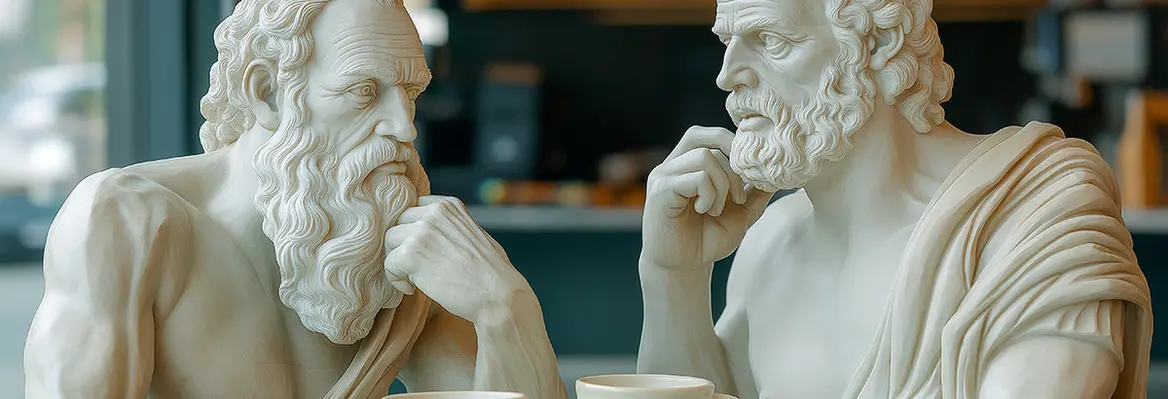In this exclusive IAI Live Interview, Massimo Pigliucci makes the case for virtue ethics against establishment beliefs coming from modern neuroscience and psychology and argues that human relationships are more important to living a good life than physical pleasure.
Charlie Barnett: Your new book, Beyond Stoicism, illuminates various insights from the Stoics and other Greco-Roman philosophers about how to philosophise and how one lives a good and flourishing life. If you were to take one or two of the greatest misconceptions that people have about Stoic and Greco-Roman philosophy more generally, what would you say they'd be?
Massimo Pigliucci: Good question. So the title of the book actually in the American version, which is the one that is a little bit misleading because really only a fraction of the book has to do with Stoicism. In the UK, it has been published as Live Like a Philosopher, which is much more appropriate.
So you're asking about misconceptions. Let's pick one general and one perhaps specific to Stoicism. I think the general misconception is that the Greco-Romans were a bunch of now-dead white dudes, and so why should we listen to them 2,000 years later? And the answer to that is, well, first of all, they are certainly dead. There's no question about it. The concept of whiteness, of course, did not apply at the time. In fact, the Greco-Roman world was incredibly diverse, ethnically, religiously, and so on and so forth.
___
A common misconception about stoicism specifically is that living like a stoic is like living like Mr. Spock from Star Trek.
___
But more importantly, these people were keen observers of human psychology, from which they derived certain interesting thoughts about what constitutes a good life, a good human life. Many of these thoughts have been validated and amplified by modern science. So the reason to listen to the Greco-Romans, as well as to other so-called wisdom traditions from different areas of the world, let's say Buddhism, for instance, from India, from ancient India, or Confucianism from China, is because these people got a lot of stuff right, and why throw away things that work?
A common misconception about stoicism specifically is that living like a stoic is like living like Mr. Spock from Star Trek. So stiff upper lip and suppressing emotions, both of which have nothing to do with actual stoicism. It is true that stoicism does value endurance, for instance.
SUGGESTED VIEWING How to be a Stoic With Massimo Pigliucci
If something happens to you, and there is nothing you can do about it, then the only reasonable option is to just endure it to see if you can get through it. But by and large, the stoics actually were cultivating what they thought as healthy emotions. So they were not trying to suppress emotions in general, but they were in fact trying to stay away from what they thought were unhealthy emotions.
A healthy emotion would be something like love for your partner, for instance, or your children or your friends, things like that. An unhealthy emotion would be anger. Cultivating anger is, according to the stoics, just a bad idea, because then you're going to act on the basis of a violent emotion that overrides reasons, and you're probably going to regret it.






















Join the conversation